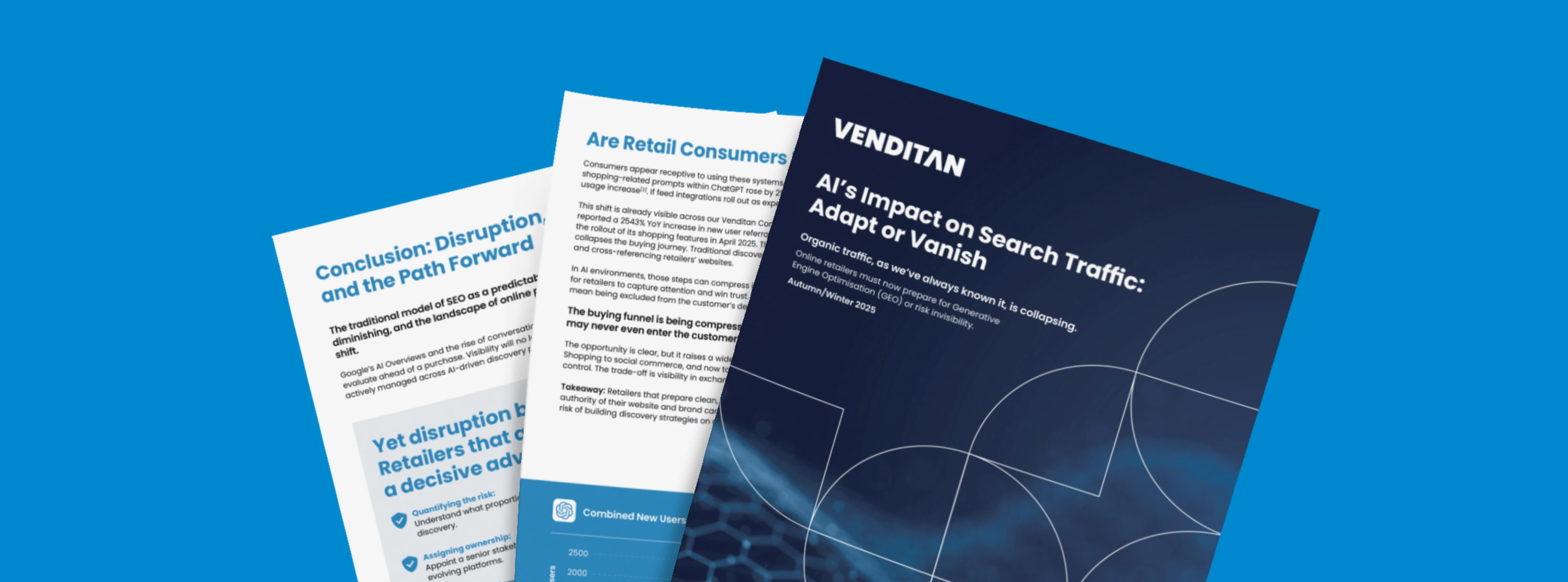Black Friday is the term used for the post-Thanksgiving sales in the United States. The concept was initially introduced to the UK market by Amazon in 2010. Their website experienced a surge in demand for discounts on items such as the Nintendo Wii, first-generation iPad, and Susan Boyle’s Christmas album.
In the subsequent years, other American-owned companies joined Amazon in hosting Black Friday sales in the UK. Major British retailers like Argos, Very, and John Lewis also joined the trend in 2014.
With over a decade of adoption into British culture, Black Friday has become our celebration—or circus, depending on your perspective—of special deals and discounts across businesses of all sizes and sectors.
As we bid farewell to our thirteenth year of Black Friday, I thought it would be intriguing to retrospectively examine what we know about this year's event, and consider what the future may hold.
The lead-up to Black Friday 2023
PwC’s annual Black Friday survey returned that interest in Black Friday had dropped from 61% in 2022 to 44% in 2023.
This shift was reflected in Finder’s demographic projections: when polled, just 49% of Gen X, 32% of Baby Boomers and 8% of the Silent Generation planned on shopping the Black Friday sales this year.

They predicted that the average spend per person on Black Friday was to be £113, 40% less than in 2022.
With a range of inflationary pressures testing the resilience of British consumers–evident in a 2.7% year-on-year fall in total retail sales (ONS)–it was anticipated that Black Friday spending would be driven by younger generations with fewer financial commitments and that their spending would do well to keep sales and revenue totals close to that of previous years.
Therefore, in contrast to previous years, spending was expected to be concentrated on low-ticket items and Christmas gift shopping rather than homeware and marquee electronics, which have become synonymous with Black Friday.
Black Friday 2023 - What we know so far
A few weeks on, sentiments from both retail-specific, national and global media outlets indicate that, at a macro level, Black Friday did not provide the adrenaline shot retailers had hoped for.
However, the event has seemingly performed 'to par' and aligned with conservative projections.
- Spending in the lead-up to Black Friday was subdued. Online retailing body IMRG recorded a 6.2% drop in sales in the second week of November and they predicted that online spending would be down by 2% compared to Black Friday 2022.
- The British Retail Consortium (BRC) said November spending increased 2.7% year-on-year, well below the 4.2% rise a year ago, and similar to the 2.5% increase in October. (Reuters)
- Real estate management software provider MRI Software said brick-and-mortar shopper numbers across Britain on Black Friday were up 11.8% versus the previous week but fell 1.6% on a year-on-year basis. (Reuters)
- They also reported that high streets dominated the brick-and-mortar sales. They saw a 10% rise in footfall on Black Friday 2023, followed by shopping centres (7.7%) and retail parks (3.5%). (Retail Week)
- Barclays said their volume of transactions on Black Friday was down 0.63% compared to 2022, but up 2.7% compared to the equivalent Friday in October of this year, "demonstrating the continued popularity and importance of this shopping milestone." (Reuters)
- John Lewis reported that sales increased 31% on Black Friday 2022 with toys among the top-selling products. (Retail Week)
- Dacia completely closed the shop for the day. “At Dacia, Black Friday is just a normal Friday,” said Luke Broad, Dacia's director in the UK.“ Shutting down our online sales for the day is a bold move but it does show our commitment to being the UK's number one car manufacturer for value.” (Autoblog)
The November 2023 Retail Sales report from the Office for National Statistics, scheduled for publication in late December, is expected to provide additional insights into the full scale of spending during the event.

So, is Black Friday still working?
As pundits and analysts dissect the aftermath, it becomes evident that the economic climate, changing consumer behaviours, and perhaps the evolving nature of the retail landscape all played a role in shaping this underwhelming outcome.
Discretionary spending and the fear of missing out
This feels like the obvious place to start.
At the beginning of November, the ONS reported that almost two-thirds (64%) of UK adults are spending less on non-essentials because of the rising cost of living.
Time will tell whether this year’s Black Friday spending was indeed driven by younger generations but if Curry’s 34% drop in traffic compared to 2022 is anything to go by, it flags a significant drop in interest across the demographics that have historically had the spending power to generate significant revenue through Black Friday deals on electronics, homeware and other high ticket items.
Perhaps the folks at Dacia were indeed on to something.
There also seems to be a sense of consumer fatigue. Bdaily delves into this topic in its recent article titled 'Has Black Friday Lost Its Sparkle?'
In the mid-to-late 2010s, there was palpable anticipation for Black Friday. If you didn't explore online or visit the high street, you felt the potential of missing out on significant deals.
While we are now living in different times, I certainly didn't sense the same enthusiasm this year. Black Friday didn't come up in conversation once with my friends and family.
Effective marketing often relies on urgency and exclusivity to drive action. I wonder whether, after thirteen years, generating both of these has become more challenging among weary consumers who are desensitised to discounts when they’re likely receiving them all year round.

The shift to a more shapeless festive period
Last month, Barclays reported that:
Nearly half (49 per cent) of UK corporate retailers opted to display festive themed goods earlier in the year, with some even displaying goods as early as June, to help customers spread the cost of Christmas amidst ongoing cost of living crunch.
Consumers, ever resourceful, are reshaping their holiday shopping habits, and this may be prompting a decline in the effectiveness of Black Friday. Mintel confirmed that in 2022, 44% of consumers started their Christmas shopping earlier than September, indicating the shift to “a more shapeless festive period.”
Faced with economic uncertainties and the looming spectre of rising living costs, individuals are adopting a more strategic approach to their Christmas spending. By spreading out their purchases across the weeks leading up to Black Friday, they aim to alleviate the financial burden associated with concentrated, high-spending periods.
We will cover this in more detail in our 10 retail and eCommerce trends for 2024.
Sustainability is increasingly shaping consumer thinking
Sticking with Mintel, their report on UK Christmas Gift Buying in 2023 revealed that, following cost-saving, sustainability emerged as the second most important priority—and to some extent, the two are interconnected.
There will be a significant opportunity for smaller-ticket, ethically-minded gifts in 2023. Given the need to keep costs down and cut back, the biggest gifting opportunities will be found at the lower-ticket end of the market. Gifts which combine value but don’t sacrifice sentiment and quality will be highly sought after.
Black Friday, known for its emphasis on large discounts and quick turnovers, may conflict with the values of conscious consumption, resulting in reduced enthusiasm for impulsive purchases.
Final thought - Don’t hang your hat on Black Friday in 2024 (but don’t disregard it either)
For me, Black Friday was at its best when businesses competed to differentiate themselves based on unmissable value. This environment fostered excellent creative thinking and offered truly exceptional deals.
As time has passed and eCommerce has risen in popularity, it feels like the more recent iterations of Black Friday have been saturated with quite generic deals—perhaps in the interest of conformity and merely participating. Offering a discount online has never been easier.
That's not a slight; I completely understand the benefits for the retailer in terms of announcing themselves as primed and ready for the festive period and potentially clearing out lingering inventory. In the not-so-distant past, retailers held the key to influencing consumer decisions by strategically deploying promotions and discounts.
However, a paradigm shift is underway as consumers become increasingly independent and savvy in their shopping choices. No longer confined to the sway of enticing discounts on a set date, they’re embracing a more thoughtful and strategic approach to their purchasing decisions. This means that deals need to be exquisitely timed, highly targeted, and provide excellent value to be successful.
So, as we navigate evolving market conditions, you may find solace in the idea that participating in next year's Black Friday event isn't obligatory. Black Friday 2024 should remain on the table for all retailers, but true success may lie in executing those three factors: timing, targeting, and value.
Consider how many resources would be required to deliver that, and you may find those resources could be better served by developing methods to engage and reward your long-term customers instead.
Our recent posts
Keep up to date with the latest news and insight from the team at Venditan
-p-2600.webp)






.webp)

